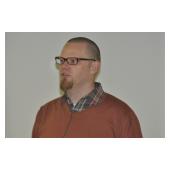Main menu
- Board Members
- Store
- Course Faculty
- Mission and Partnership
- Online Learning
- Staff
- Synodically Authorized Ministry
- Study Materials (Free)
LSM Podcasts-2013-2014
Practicing Discipleship
Terri Elton (Luther Seminary)
Session 1:Adaptive Leadership: Leading Change Being church in the 21st century requires leading adaptively.
Session 2-4: Faith Formation in a Missional Age This session will be an open discussion on the challenges we all face when doing ministry in this era. What are the challenges we are faced with? What is the opportunity?
Rozella White (ELCA Staff Young Adults)
Session 1: Towards a Theology of Accompaniment: Young Adult Ministry in the 21st Century Before you ask how to get young adults in your church, how about spending some time reflecting on who they are, where young adults spend their time and why young adults are NOT in the church.
Sessions 2-4: Walking Together in Solidarity: A Theology of Accompaniment The ministry of accompaniment is the sacred act of being in authentic relationship with others.
Colleen Windham-Hughes (California Lutheran U)
Session 1: “Mash-up Mission: faithfulness across generations"
Being church sends us to connect in creative ways with our neighbors and each other.
Sessions 2-4: In•cultur•ating the gospel The gospel is the good news for all people, in all places, at all times.
Susan Engh (Director for Congregation-based Organizing for the ELCA)
Session 1: "The Church in its Public Expression: A Continuum of Responses"
Explore the various ways that people and communities of faith respond to issues and opportunities in the public arena.
Session 2-4: One-To-One "Relational Meetings" and Six Practical Application The field of community organizing offers a great tool for building or deepening relationships within our congregations as well as in the broader community.
Jeremy Meyers (Augsburg College)
Session 1: Hearing the Call to the Public Square How do we become communities of faith deeply engaged in listening to our neighbor not only as an act of service but as as our primary method of faith formation & discipleship?
Sessions 2-4: Going Public These sessions will lay out some hands-on ways of leading your congregation into the public square as a method of forming faith while serving your community.
Nate Frambach (Wartburg Seminary)
Session 1: Living and Leading in Systems We will focus on systems thinking and some basic concepts in family systems theory to help us better understand human beings--both individually and collectively. We will consider the emotional and interpersonal dynamics between persons as a way of understanding congregations as systems.
Sessions 2-4: Theories of Culture: A New Agenda for Theology, Ministry, and Faith Formation How do we move beyond popular definitions to a deeper understanding of the notion of
culture for today?
Hans Wiersma (Augsburg College)
Session 1: Remembering The Wittenberg Door and More: Getting Ready for the 500th Anniversary of the Reformation
The 500th Anniversary of Martin Luther Posting the 95 Theses is just around the bend (on October 31, 2017, to be precise). In light of this, the Lay School of Ministry’s continuing education theme will be Luther-and-the-Reformation for the 2015-2016 year. This session will provide a preview of sorts by way of offering (1) an overview of the events that kicked off the Reformation 500 years ago, (2) reasons why Lutheran congregations (especially!) should begin planning now to observe this important event, (3) guidance for how to observe this important event, and (4) resources already available to help congregations in their planning for the 2017 observation.
Sessions 2-4: "When Necessary Use Words"? Verbum Dei Theology for Right Now Along with Scripture, we'll look at past and present resources from Lutheran and
other traditions to guide our investigation.
David Fredrickson (Luther Seminary)
Paul and Poetry
The self-emptying of Christ (kenosis) in Philippians 2 has long been the focus of attention by Christian theologians and interpreters of Paul's christology. Our own Dr. David Anderson, did his doctoral work on this topic! In our last two sessions of the year, Dr. Fredrickson will share with the class his ground breaking work connecting Paul’s theology with Sappho and Paulus Silentarius. Who are they you might ask? Sappho (of the 7th century BCE) and Paulus Silentiarius (of the 6th century CE) wrote about longing for communion. Sappho originated a number of love motifs that Paulus Silentiarius incorporates. We will be amazed to discover that Paul the Apostle utilized the poetic language of Sappho as he tried to describe the saving work of Christ! We will ask what difference poetic imagination makes for Christian theology then and now. What does it mean to be a disciple of a savior who emptied himself and took on the form of a servant?
Multiple Missional Strategies In the last two sessions of this course, we'll look at the varied NT responses to engaging the culture. Luke, John and Paul each have distinctive approaches to the way in which the Christian communities should interact with the Greco Roman world they found themselves in. The 21st century world is equally complex. Join me in mining these different missional approaches and discover how they challenge our basic assumptions and offer bold, new directions for engaging the world.
|
$0.00
|
$0.00
|
$0.00
|
$0.00
|
|
$0.00
|
$0.00
|
$0.00
|
$0.00
|
|
$0.00
|
Questions & Comments
If you have further questions or comments about Select Learning theological materials, please contact:
Jodi Hanson
jodi@selectlearning.org
NOTE: Please include your church name and address. Thank you.
Newsletter Signup
Address
1068 Summit Avenue
South St. Paul, MN 55075
P: 877.675.6275
E: info@selectlearning.org


